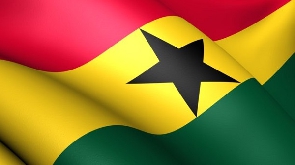Ghana’s creditworthiness status has come under back-to-back downgrades this year as its debt continually grew beyond sustainable levels.
As the year comes to an end, GhanaWeb takes a look at the number of years this has happened.
Fitch:
The downgrades began on January 21, 2022, when Fitch downgraded Ghana's Long-Term Foreign-Currency Issuer Default Rating (IDR) to 'B-' from 'B' with a negative outlook.
Fitch on August 10, 2022, again downgraded Ghana's Long-Term Foreign-Currency (LTFC) Issuer Default Rating (IDR) to 'CCC' from 'B-'.
The downgrade reflects the deterioration of Ghana's public finances, which has contributed to a prolonged lack of access to Eurobond markets, in turn leading to a significant decline in external liquidity.
In the absence of new external financing sources, international reserves will fall close to two months of current external payments (debits in the current account) by end-2022.
However, on September 23, 2022, Fitch Ratings downgraded Ghana's Long-Term Local- and Foreign-Currency Issuer Default Ratings (IDRs) to 'CC', from 'CCC'.
Fitch stated that the downgrade reflects the increased likelihood that Ghana will pursue a debt restructuring given mounting financing stress, with surging interest costs on domestic debt and a prolonged lack of access to Eurobond markets.
On December 8, 2022, Fitch Ratings downgraded Ghana's Long-Term Local-Currency (LTLC) Issuer Default Rating (IDR) to 'C' from 'CC'.
The issue ratings on local-currency bonds issued domestically were also downgraded to 'C' from 'CC'. Fitch has affirmed Ghana's Long-Term Foreign-Currency IDR at 'CC'.
Moody’s
In February, Moody's slashed the country's credit rating from B3 to CAA1, saying Ghana's debt was subject to "very high credit risk”.
Moody's has also downgraded the senior unsecured MTN programme ratings to (P)Caa1 from (P)B3 and the backed senior unsecured debt rating to B3 from B1.
On September 30, 2022, Moody's Investors Service ("Moody's") downgraded the country’s long-term issuer and senior unsecured debt ratings to Caa2 from Caa1 and placed the ratings on review for downgrade.
On October 3, 2022, Moody’s downgraded Ghana’s long-term issuer and senior unsecured debt ratings to Caa2 from Caa1 and placed the ratings on review for downgrade.
The rating downgrade to Caa2, it said, reflected the recent macroeconomic deterioration, further heightening the government’s liquidity and debt sustainability difficulties and increasing the risk of default.
On November 29, 2022, Ghana was downgraded deeper into junk territory by Moody’s Investors Service on the likelihood that private creditors will incur steep losses during the government’s planned debt restructuring.
The country’s credit rating was slashed by two levels to Ca, the second-lowest score at Moody’s putting Ghana on par with Sri Lanka, which is in default.
This was after Ghana announced a debt exchange programme after the government’s admission that Ghana was a high-debt distressed country.
S&P Global:
American credit rating agency, Standard and Poor's (S&P) Global Ratings on Friday, August 5, pushed Ghana's debt further into speculative territory, lowering its foreign and local currency sovereign ratings to CCC+/C from B-/B.
S&P said its outlook for the country remains negative, "reflecting Ghana's limited commercial financing options, and constrained external and fiscal buffers."
"There is also demand for foreign currency that has been driven higher by several factors, including nonresident outflows from domestic government bond markets, dividend payments to foreign investors, and higher costs for refined petroleum products," S&P said.
On December 21, 2022, S&P Global Ratings cut Ghana to default following the country's announcement of a suspension of debt payments.
According to a Bloomberg report, the action "complicates the planned debt restructuring meant to unlock a bailout by the International Monetary Fund."
"The West African nation, which has $13 billion of foreign bonds, was downgraded to selective default from CC due to the moratorium on debt payments, the credit assessor said in a Tuesday statement. The default comes as Ghana suffers from "very low net reserves, a volatile exchange rate, high inflation, and the weakened economy," Bloomberg noted in its December 20, 2022 report.
The rating by S&P was expected as the suspension of the debt payments signified a default by the country.
SSD/WA
Business News of Saturday, 24 December 2022
Source: www.ghanaweb.com













